Health & Fitness
How to Know If You Have a Vitamin B12 Deficiency—and What to Do About It

Vitamin B12 may not always get the spotlight like vitamin C or D, but it plays an essential role in keeping our bodies running smoothly. From neurological function to red blood cell production, a deficiency, known as Vitamin B12 Deficiency, in this crucial vitamin can lead to long-term health problems if not addressed quickly. This article dives into the signs, causes, and actionable solutions for B12 deficiency—tailored for a modern UAE lifestyle.
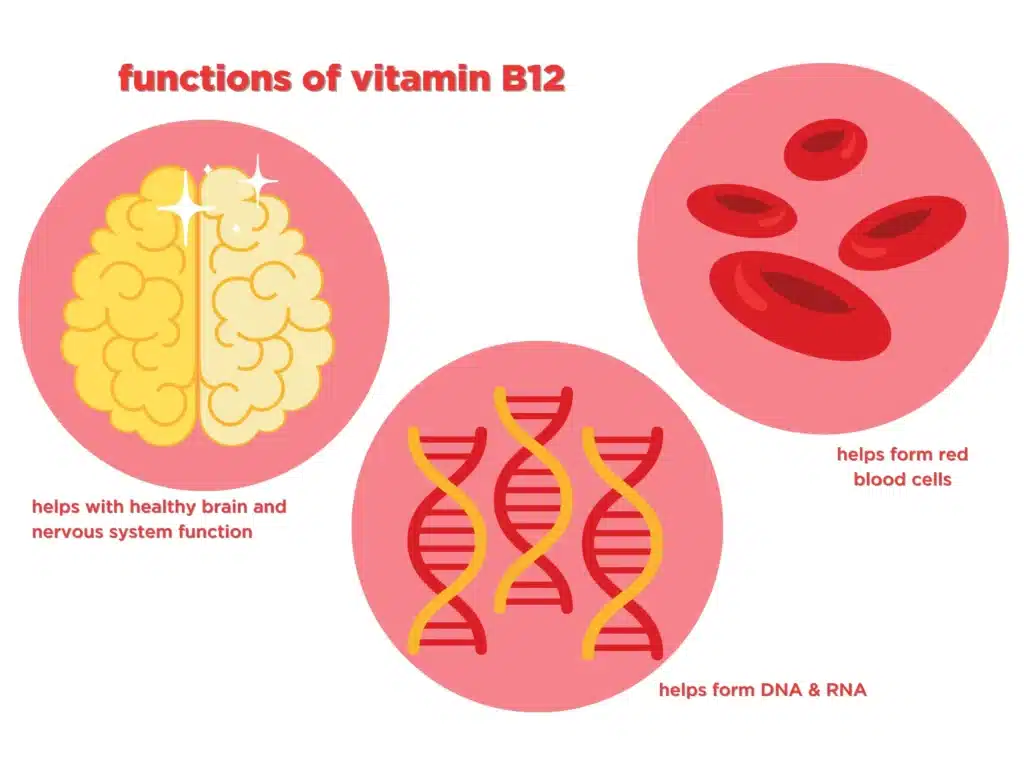
What Is Vitamin B12 and Why It Matters
Vitamin B12 (cobalamin) is a water-soluble vitamin vital for three primary functions:
- Red blood cell formation
- DNA synthesis
- Neurological function
It is naturally found in animal-based foods, which means those following plant-based diets are more susceptible to deficiency. B12 deficiency can cause a condition known as megaloblastic anaemia, where the body produces unusually large and dysfunctional red blood cells. But more critically, long-term deficiencies can impact cognitive performance, mood stability, and nerve health.

Who Is at Risk of B12 Deficiency in the UAE?
Several demographics are particularly vulnerable:
- Vegetarians and Vegans: Without animal products, dietary B12 becomes nearly impossible to obtain naturally.
- Older Individuals: Ageing reduces the stomach’s ability to absorb B12.
- People with Digestive Disorders: Conditions like Crohn’s disease or celiac disease can impede absorption.
- Long-term Medication Users: Proton pump inhibitors and metformin have been linked to lower B12 absorption.
- Heavy Alcohol Consumers: Alcohol impairs nutrient absorption and damages gut health.
According to Sophie Trotman, a registered nutritionist, “Long-term use of certain medications, such as proton pump inhibitors or metformin, and excessive alcohol intake can also lead to B12 deficiency.”

Recognising the Symptoms: Are You B12 Deficient?
A Vitamin B12 deficiency doesn’t usually develop overnight. It can creep in over time, with symptoms often mistaken for other health issues. Common signs include:
- Chronic fatigue or weakness
- Numbness or tingling in hands and feet
- Difficulty walking or maintaining balance
- Memory loss or cognitive decline
- Pale or jaundiced skin
- Mood changes such as depression or irritability
Dr Lapa, a UAE-based nutritional health consultant, adds: “In extreme cases, B12 deficiency can lead to severe and potentially irreversible symptoms including nerve damage and significant cognitive decline.”
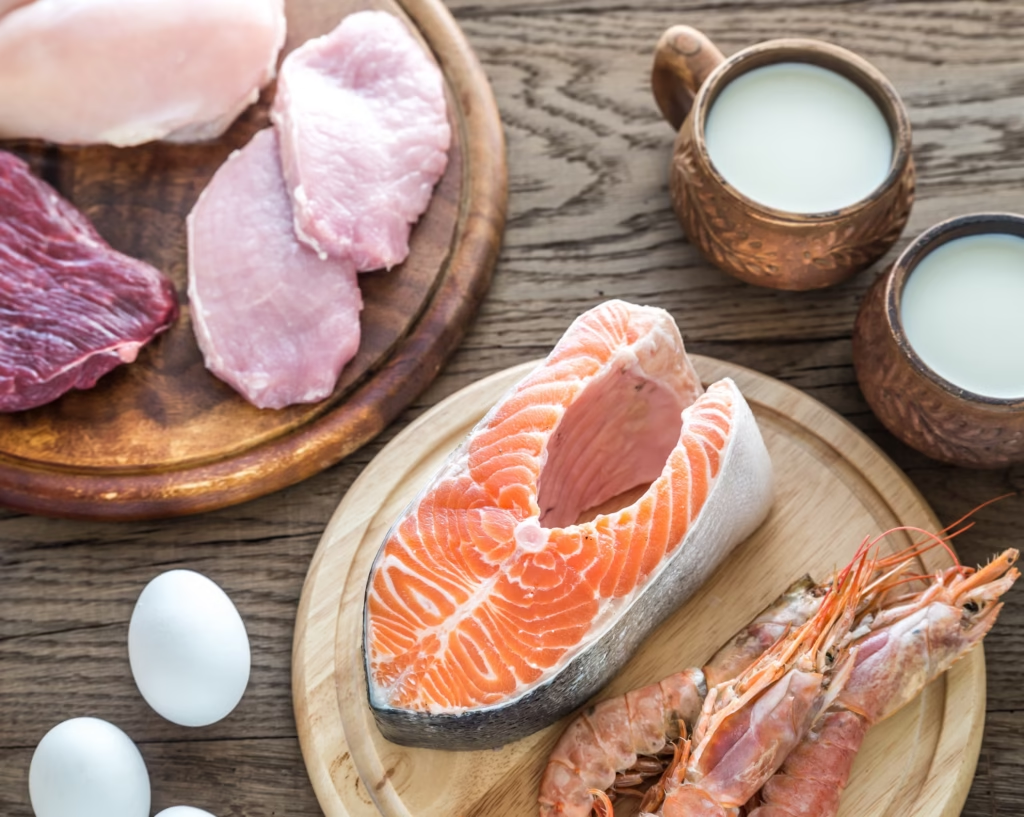
The Science: How Does B12 Deficiency Happen?
Vitamin B12 from food is bound to protein and must be released through stomach acid. It’s then absorbed in the small intestine with the help of intrinsic factor, a glycoprotein. If any part of this chain breaks, such as low stomach acid or damaged intestinal lining, deficiency may follow.
This makes it especially important in the UAE, where high-stress lifestyles and gastric issues are common. Overuse of acid-reducing medications, prevalent among expats and locals alike, also plays a contributing role.
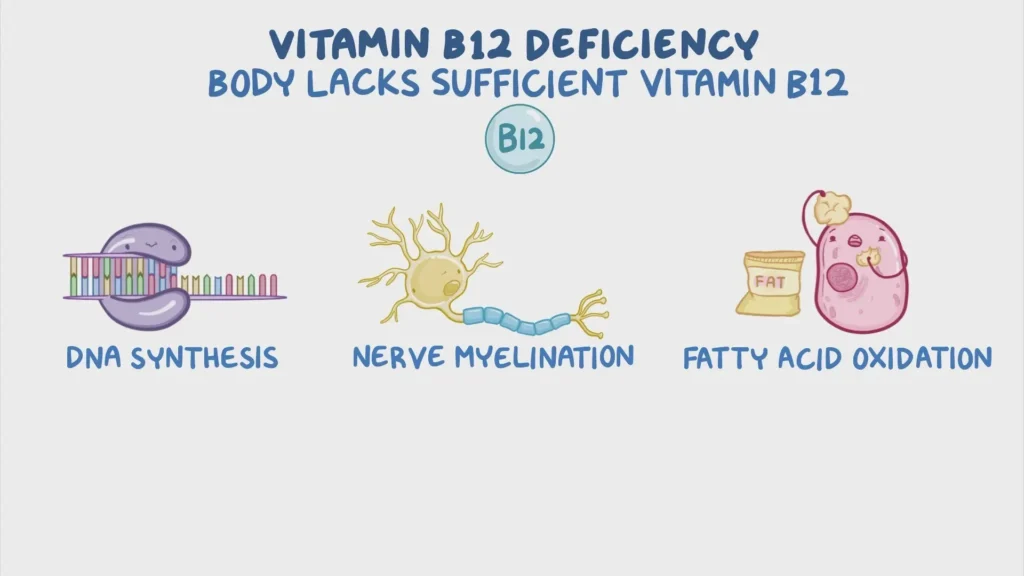
Can You Get Enough B12 From Diet Alone?
Yes—and no. If you consume a diet rich in animal products, you’re likely safe. Foods high in B12 include:
- Organ meats (especially liver)
- Shellfish such as clams and crabs
- Fatty fish like salmon and tuna
- Eggs
- Dairy: milk, yoghurt, and cheese
For vegetarians and vegans, fortified foods become essential:
- Plant-based milks enriched with B12
- Fortified cereals
- Nutritional yeast
However, Trotman notes, “It’s challenging to obtain sufficient B12 from plant-based sources alone,” suggesting supplementation for those following a strict vegan or vegetarian diet.

Supplementation: When Food Isn’t Enough
If you’re showing symptoms or fall into an at-risk group, supplementation may be necessary. Options include:
- Oral Supplements: Cyanocobalamin and methylcobalamin are common forms. Methylcobalamin is more bioavailable but pricier.
- Sublingual Tablets: Absorbed under the tongue, bypassing the digestive tract.
- Nasal Sprays: Quick and convenient, especially for those with absorption issues.
- Injections: Administered intramuscularly, these are used in severe cases for rapid correction.
Wedgwood, a clinical nutritionist, explains: “B12 shots bypass the digestive process entirely, allowing for more immediate absorption. Many patients feel a boost in energy and mental clarity within a week or two.”

How to Get Tested in the UAE
Blood tests for B12 levels are widely available in the UAE through private clinics and hospitals. If you experience symptoms or fall into a high-risk category, request a blood test that measures:
- Serum B12
- Methylmalonic acid (MMA)
- Homocysteine levels
These biomarkers offer a fuller picture of your B12 status. Testing is quick and affordable, and often covered by health insurance.

The Risks of Ignoring a Deficiency
Left unchecked, a deficiency in Vitamin B12 can lead to:
- Irreversible nerve damage
- Severe anaemia
- Cognitive impairment
- Mood disorders, including depression and paranoia
- Heart issues due to elevated homocysteine levels
As Dr Lapa puts it, “If left untreated, these symptoms can result in permanent nerve damage and substantial impairment in daily functioning.”

Prevention: A UAE Lifestyle Guide
To maintain healthy B12 levels, consider the following steps:
- Eat B12-rich meals regularly
- Monitor alcohol consumption
- Avoid unnecessary use of antacids
- Consider annual blood tests, especially if you’re vegan or over 50
- Use supplements if advised by your doctor
In a fast-paced country like the UAE, where brunches, travel, and high-pressure jobs are common, burnout symptoms might be masking something more serious, like a B12 deficiency.

Final Thought
Vitamin B12 may be the unsung hero in your nutritional line-up, but it’s one you can’t afford to ignore. Whether you’re a wellness aficionado or just trying to stay energised through the working week, keeping your B12 in check is a smart move. With simple dietary adjustments, routine tests, or strategic supplementation, staying on top of this essential nutrient is easier than ever.
Health & Fitness
Is Beef Tallow Actually Any Good for You?
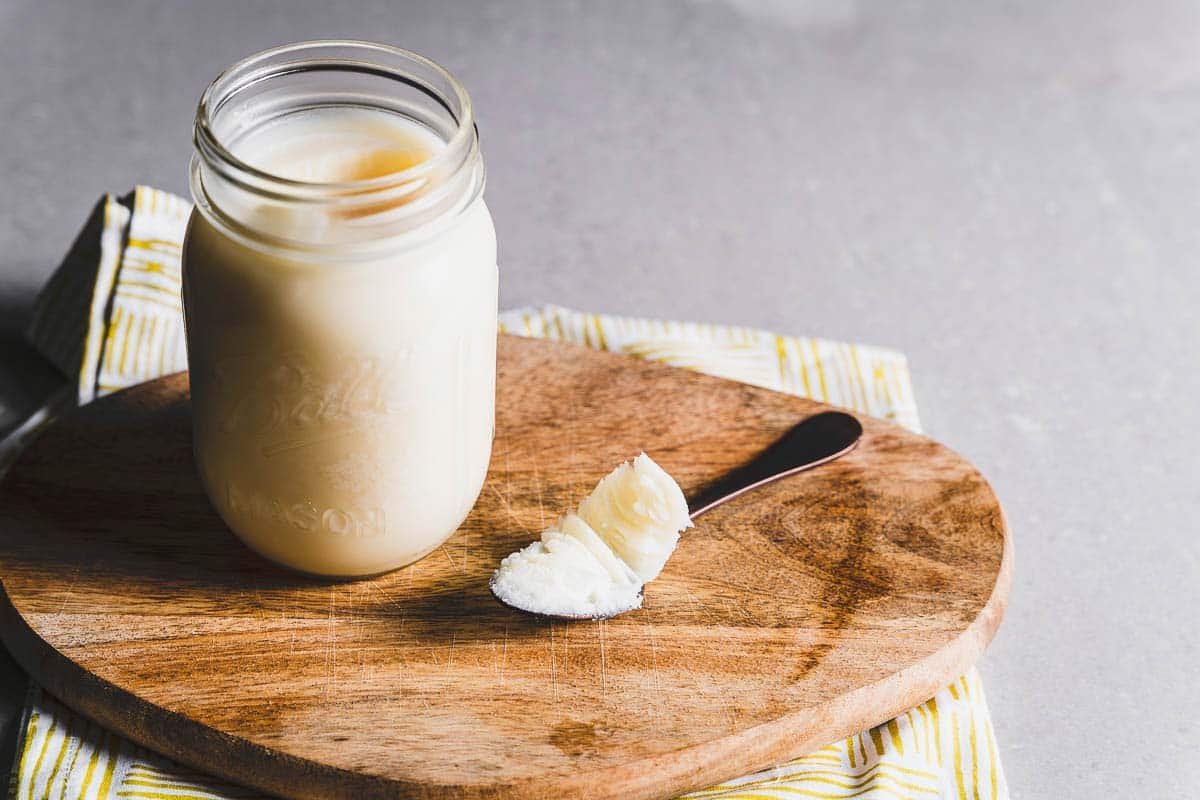
Beef tallow has re-emerged as a trending topic across social media, alternative wellness spaces, and even fast-food menus. While TikTokers are slathering it on their skin and political health influencers are calling for its return to fryers, the bigger question remains: is beef tallow healthy and actually any good for you?
This simple substance, derived from rendering beef fat, has sparked debates surrounding skincare, cardiovascular health, and ancestral nutrition. Its resurgence is closely tied to broader cultural movements, such as Make America Healthy Again (MAHA), where food choices are viewed as political statements. But beyond the hype, expert insight shows there’s more nuance to tallow than the headlines would have us believe.
What Exactly Is Beef Tallow?
Beef tallow is rendered beef fat. It’s cooked down to remove impurities and has a high smoke point, making it a traditional favourite for frying. Historically used before the rise of seed oils, tallow fell out of favour due to its saturated fat content. Now it’s having a moment again, in kitchens and on vanities.
Its use is twofold: as a cooking oil that proponents claim is healthier than seed oils, and as a skin moisturiser due to its natural fatty acid profile. From influencers to celebrity chefs, beef tallow is being rebranded as a “clean” and “ancestral” fat, but the scientific verdict is more mixed.
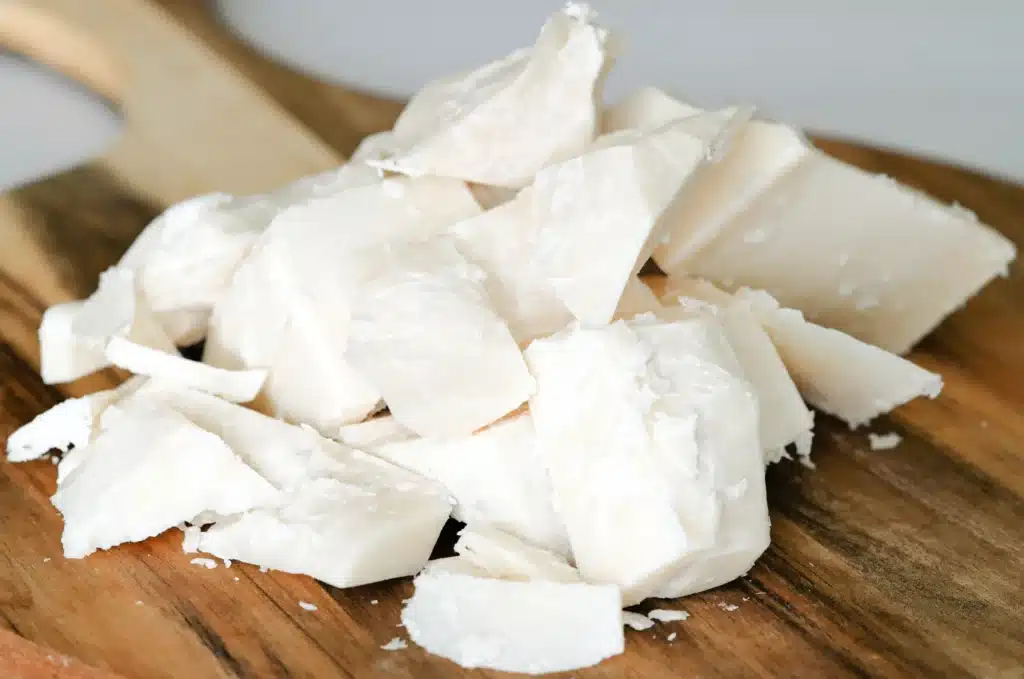
Is beef tallow healthy?
Why People Are Cooking With It Again
The MAHA crowd, as well as health-conscious chefs, have criticised seed oils for their high omega-6 content and link to chronic inflammation. Figures like Robert F. Kennedy Jr. have promoted beef tallow as a healthier alternative, and franchises like Steak ’n Shake have already made the switch.
However, according to registered dietitian Maddie Pasquariello, the claim that tallow is nutritionally superior is unfounded. Yes, it contains fat-soluble vitamins A, D, E, and K2, but those same nutrients can be obtained from other foods that don’t come with the downside of high saturated fat.
Sweetgreen, for example, has moved away from seed oils in favour of olive and avocado oils—a pivot driven by concerns over ultra-processing, not necessarily a return to animal fats. What unites both camps is a desire for fewer additives and closer-to-nature ingredients, even if their interpretations differ.
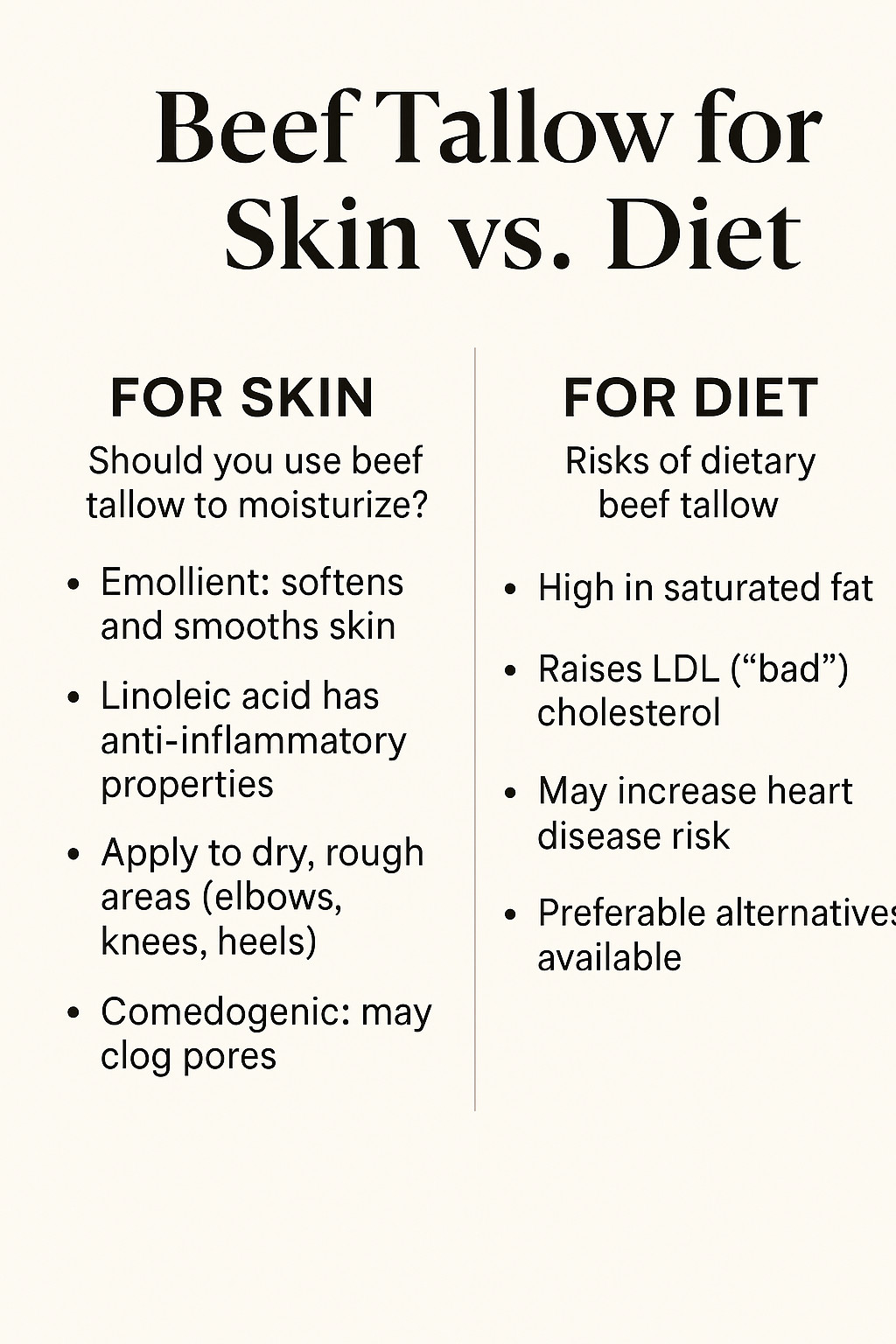
The Skincare Craze: Should You Use Beef Tallow on Your Face?
On the beauty front, beef tallow has gone viral on TikTok, with users praising it for its hydrating benefits. Dermatologist Dr. Michele Green notes that tallow’s fatty acid composition mimics the natural oils in human skin.
“It can replenish moisture and contains linoleic acid, which has anti-inflammatory properties,” she explains. According to a 2024 meta-review, tallow may aid in treating dry skin, psoriasis, and minor wounds.
But that doesn’t mean it’s a skincare miracle. Dr. Corey Hartman warns that tallow is comedogenic, meaning it clogs pores. “If you have oily or acne-prone skin, using it on your face is likely to cause breakouts,” he says.
Instead, the experts suggest safer, proven alternatives: humectants like hyaluronic acid and glycerin for hydration, and ceramides for barrier repair.
Where Can You Safely Apply Tallow?
Dr. Hartman recommends using tallow only on body areas that lack oil glands, such as elbows, knees, and heels. These rough patches can benefit from an occlusive moisturiser without risking clogged pores or flare-ups.
Sensitive skin types should still proceed with caution. Dr. Green points out that irritation and allergic reactions are possible, especially without formulation testing. Tallow may work as an occasional balm, but shouldn’t replace a tailored skincare regimen.
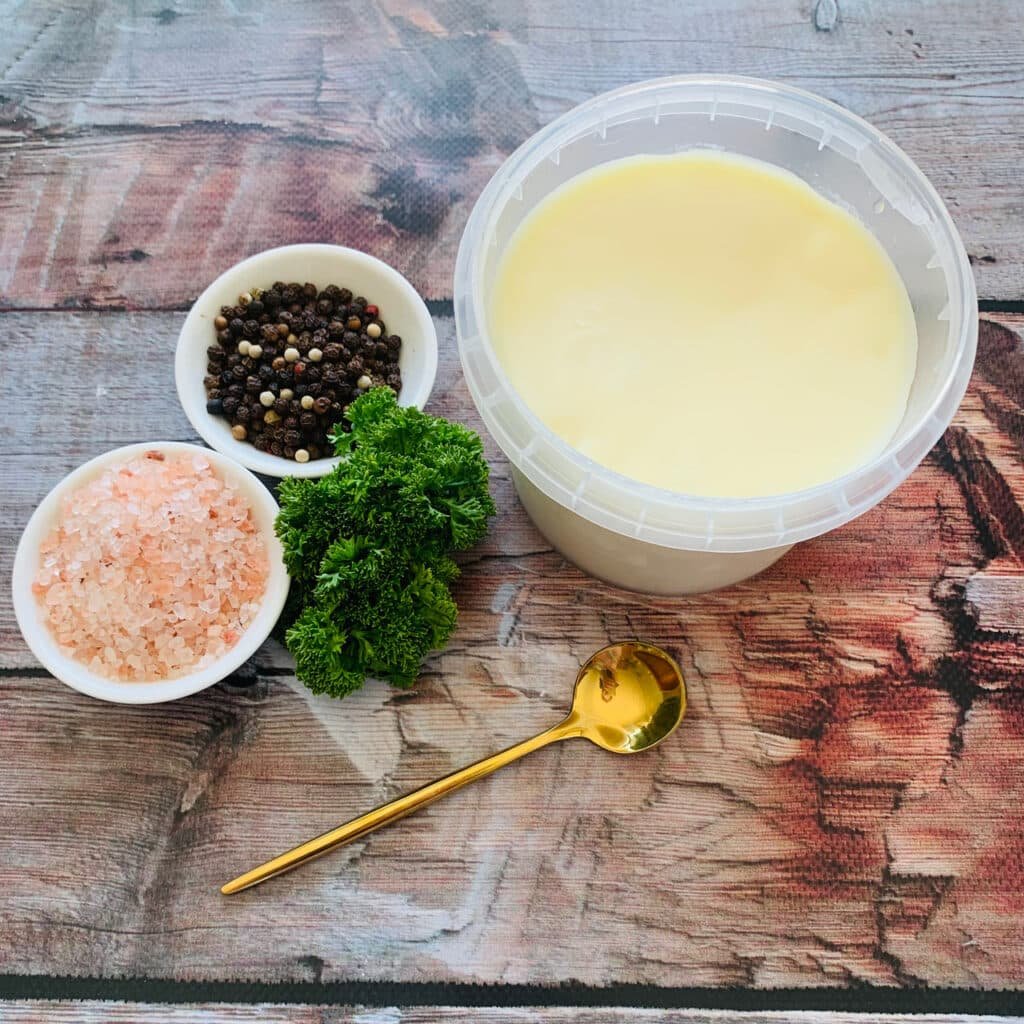
Nutritional Drawbacks: A Cardiologist’s View of Beef Tallow
From a dietary perspective, beef tallow is less forgiving. Dr. Kaustubh Dabhadkar, a preventive cardiologist, explains that its high saturated fat content raises LDL (“bad”) cholesterol levels.
“LDL leads to plaque buildup in arteries, increasing the risk of heart disease,” he says. For people with diabetes, cholesterol issues, or heart disease risk factors, tallow should be avoided.
In comparison, seed oils like canola, soybean, and sunflower—despite being ultra-processed—contain more unsaturated fats, which help lower LDL and support cardiovascular health.
A recent study showed that replacing saturated fats with plant oils significantly reduced mortality from heart disease, cancer, and other causes. These findings reinforce the long-standing dietary guideline: swap out saturated fat for unsaturated fat when possible.
Are There Any Real Benefits?
Proponents argue that tallow supports hormonal health and detoxification. Dr. Gowri Rocco, a California-based physician, notes that tallow is nutrient-dense, but cautions that there’s no clinical evidence supporting hormonal benefits.
Meanwhile, Pasquariello calls out the marketing hype. “Tallow is not inherently toxic, but there are no unique health advantages. You can get the same fat-soluble vitamins from leafy greens, oily fish, and colourful vegetables,” she says.
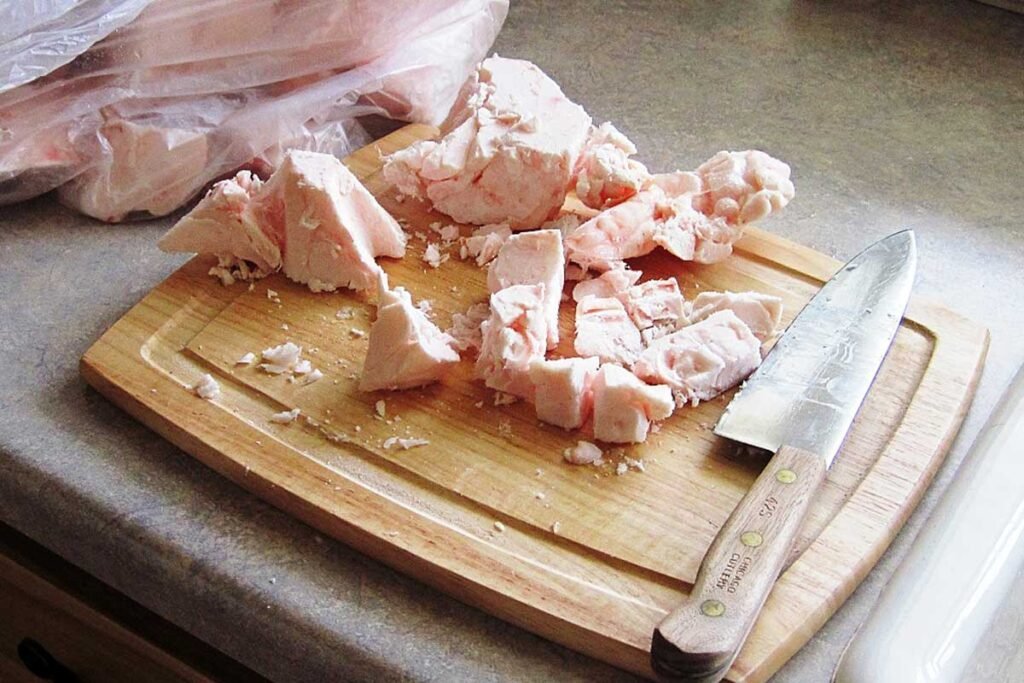
The Bigger Picture: What Beef Tallow Says About Health Trends
Beef tallow’s resurgence aligns with a few broader food and beauty movements:
- Ancestral eating: favouring traditional fats and foods
- Skincare minimalism: using fewer, simpler ingredients
- Food politicisation: MAHA and anti-seed oil campaigns
These trends emphasise returning to nature, avoiding additives, and embracing self-reliance. But they also risk spreading oversimplified or unscientific claims that don’t account for individual health contexts.
Whether you’re buying into beef tallow for its retro appeal, its culinary flair, or its TikTok-backed glow-up, the experts advise moderation, not devotion.
Cultural Influence and the Animal Fat Revival
The return of beef tallow is part of a larger cultural revival tied to the Paleo and Carnivore diet movements. These communities advocate a return to traditional animal-based fats, often rejecting processed oils and carbohydrates altogether. Influencers within these spaces glorify tallow not just for its culinary use but as a symbol of ancestral strength and purity.
On social media, the promotion of tallow has taken on a performative dimension, with wellness influencers portraying it as a badge of authenticity in a world full of synthetic products. Whether used in cooking or rubbed on skin, beef tallow has become a rallying cry for those disenchanted with modern food and beauty industries.
This symbolic use of tallow underscores a deeper yearning—one for simplicity, strength, and natural order—even if the scientific evidence supporting these claims remains limited. Like many modern trends, it’s as much about identity as it is about health.
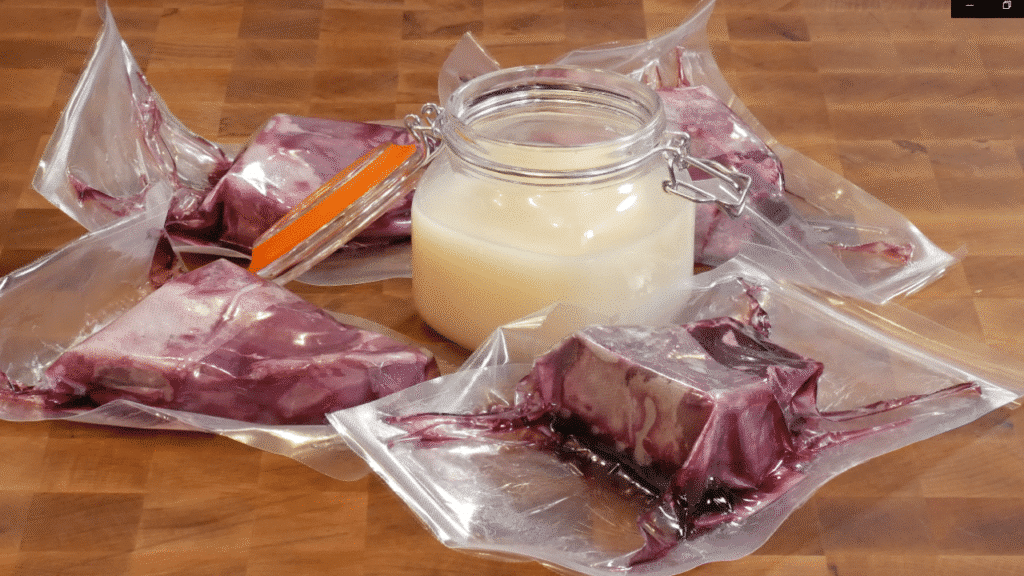
Final Word: Beef Tallow. It’s Fat. Not a Miracle.
Beef tallow isn’t evil, nor is it the elixir it’s being made out to be. It’s a fat. One that adds flavour to fries and may help your cracked heels. But for heart health and clear skin, you’re better off relying on evidence-based ingredients and balanced nutrition.
If you enjoy cooking with tallow or want to dab a bit on dry skin, go for it. Just know it’s not the miracle that some wellness influencers would have you believe.
Is beef tallow healthy? Yes.
Frequently Asked Questions
Beef tallow is rich in natural saturated fats and can support vitamin absorption. However, moderation is essential due to its high calorie content.
Yes. Beef tallow contains fat-soluble vitamins like A, D, E, and K, which are crucial for immune and bone health.
Beef tallow is ideal for frying, roasting, and baking because of its high smoke point and flavour-enhancing properties.
Some prefer beef tallow over vegetable oils as it’s natural and stable under heat. However, dietary needs vary.
Beef tallow is available at speciality butcher shops, organic stores, and online platforms across the UAE.
Health & Fitness
How to Whiten Teeth in the UAE — The Real Guide You Actually Need

Searches for the best way to whiten teeth in the UAE have exploded in recent months — and it’s not just because everyone wants that TikTok-perfect smile. In a region where impressions matter and appearances reflect confidence, teeth whitening is no longer a luxury; it’s an essential. But which method works best, which ones are safe, and how do you avoid wasting your dirhams on scams?
This is not another generic article listing the same tired tips. This is your fully human, brutally honest, experience-driven breakdown of how to whiten your teeth in the UAE — without ending up with sensitivity, enamel damage, or regret. Welcome to the only post on the internet you need to read before putting anything on your teeth.
What Exactly Is Teeth Whitening?
Teeth whitening is a cosmetic dental procedure aimed at removing stains and discolouration from the teeth to make them appear brighter. It works by using either peroxide-based bleaching agents or abrasive cleaners to break down and eliminate surface stains.
But the term “whitening” is misleading — because no method truly changes your natural tooth colour. It simply removes build-up and surface layers. What you’re chasing is a return to your brightest, cleanest version.
Here’s Why Everyone in the UAE Is Talking About It
Whitening is big business. In the UAE — particularly in Dubai and Abu Dhabi — it’s practically a rite of passage. From influencers to executives, bright white teeth are tied to youth, hygiene, and lifestyle.
And with dental clinics on every corner and home kits flooding shelves, the options are endless — and confusing. You’re bombarded with ads promising instant results, while dentists warn about permanent damage. So who’s right?
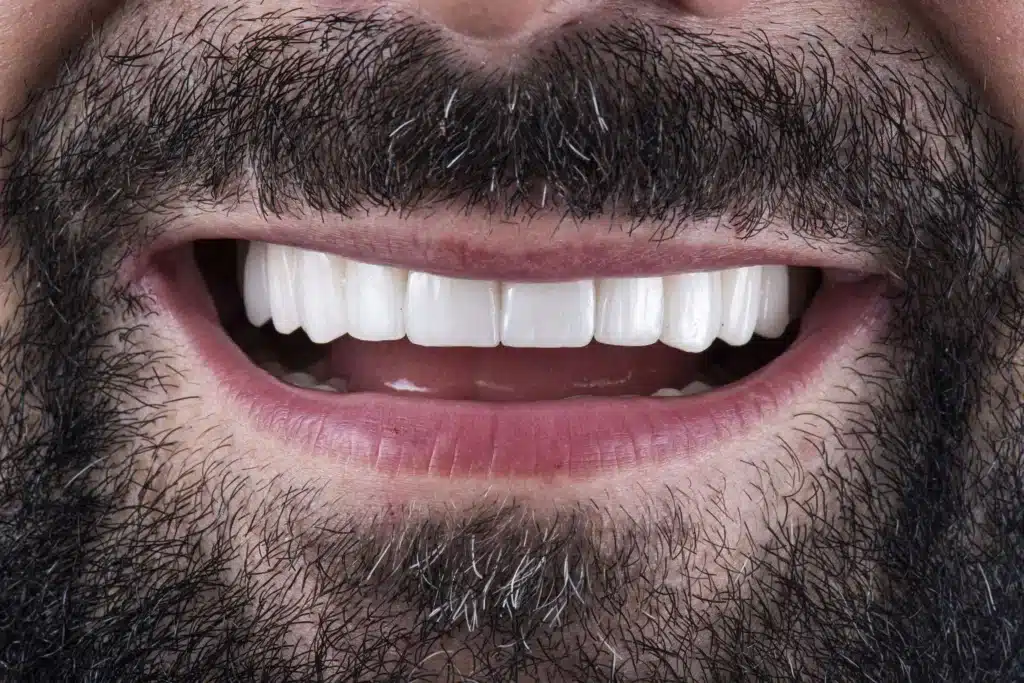
Clinic Whitening vs. Home Whitening — Which One Wins?
There are only two real ways to whiten your teeth: either professionally in a clinic or using an at-home method. Let’s break them down:
Clinic Whitening (In-Office Treatments)
- What it is: Usually involves hydrogen peroxide gels and blue LED light to accelerate the process.
- Cost in UAE: AED 800 – AED 2,500
- Best for: Fast, dramatic results in 1–2 sessions.
- Downside: Temporary sensitivity. Needs upkeep.
Home Whitening Kits
- What it is: Pre-loaded trays, whitening pens, or strips with lower peroxide concentrations.
- Cost in UAE: AED 150 – AED 600
- Best for: Gradual improvement over weeks.
- Downside: Takes longer and may be less effective on deep stains.
Real talk: We tested three kits and only one actually whitened more than two shades — and it took 14 days, daily. Instant results are a myth unless you go pro.
Does Charcoal Work? Here’s the Dirty Truth
Charcoal toothpaste is trendy, but dentists are not fans. While it may remove surface stains, it’s also abrasive — and too much use can wear away enamel. Enamel does not regenerate. Once it’s gone, it’s gone.
Use charcoal sparingly, and never daily. Combine it with fluoride to avoid long-term damage.
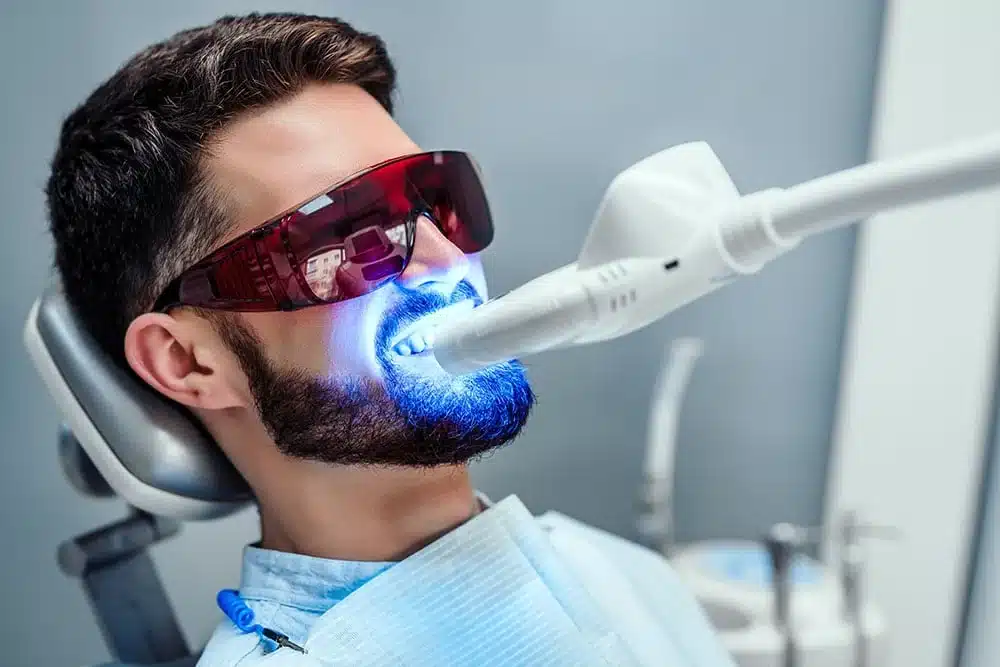
The 5 Whitening Mistakes Everyone Makes (and How to Avoid Them)
- Brushing right after whitening – Wait 30 minutes. Your enamel is temporarily softer.
- Over-whitening – More is not better. Too much leads to sensitivity and translucent teeth.
- Using whitening toothpaste every day – It’s abrasive. Cycle it weekly.
- Drinking coffee or tea right after – These stain your newly exposed enamel.
- Trusting Instagram brands – If it’s endorsed by an influencer, you probably don’t want it in your mouth.
What UAE Dentists Say: Professional Advice
We asked a few dental professionals around Dubai and Abu Dhabi for their take. Here’s what they told us:
“In-clinic whitening is the safest and fastest way. Home kits are fine, but don’t overdo it.”
– Dr. Sarah Mansoor, Dubai Smile Clinic
“Avoid any whitening product that doesn’t list its peroxide content. Transparency is key.”
– Dr. Khaled Ameen, Abu Dhabi Dental Experts
A 30-Day Whitening Journey: What We Did (And What Happened)
We put three volunteers on different methods: a clinic treatment, a premium home kit, and a DIY paste. Here’s what happened:
- Clinic Patient – 4 shades whiter in one session. Slight sensitivity, lasted 5 days.
- Home Kit User – 2 shades whiter after 10 days. No sensitivity.
- DIY User (baking soda + lemon) – No change. Complained of gum burn. We do not recommend.
This proves that DIY methods are not worth the risk — especially when you can access safe alternatives in the UAE market.
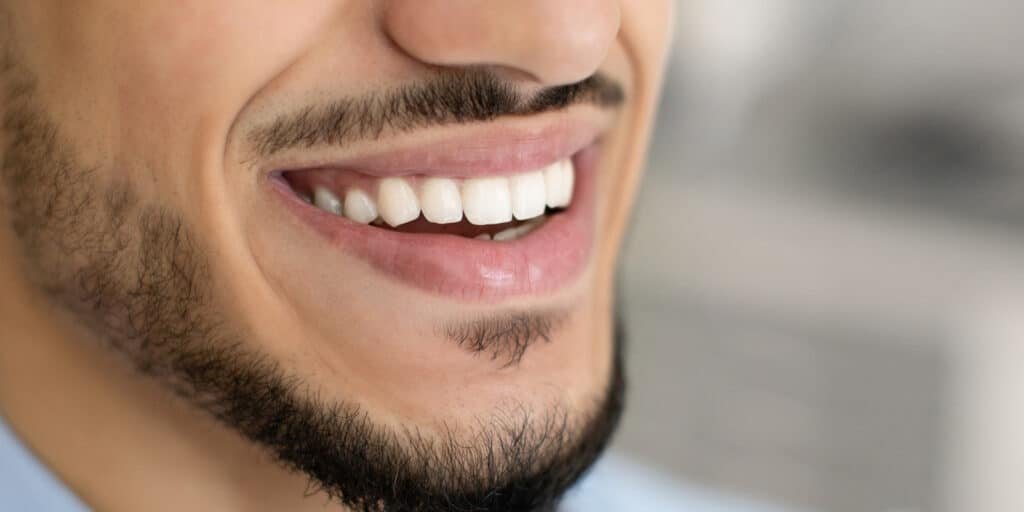
Legal Note: What’s Regulated in the UAE?
Tooth whitening products in the UAE must comply with Ministry of Health guidelines. Concentrations above 6% hydrogen peroxide are restricted for clinical use only. Selling unlicensed high-peroxide kits is illegal.
Always ask for the full ingredients list. If the brand refuses to disclose — that’s your red flag.
What’s the Safest Way to Keep Them White?
After whitening, your real challenge begins: maintenance. Here’s how to keep your teeth bright long after your last session:
- Use a straw when drinking dark liquids
- Rinse with water after coffee, tea, or wine
- Brush twice daily with low-abrasion toothpaste
- Avoid acidic foods within one hour of whitening
Also consider a monthly touch-up strip or whitening pen to maintain results without going back to square one.
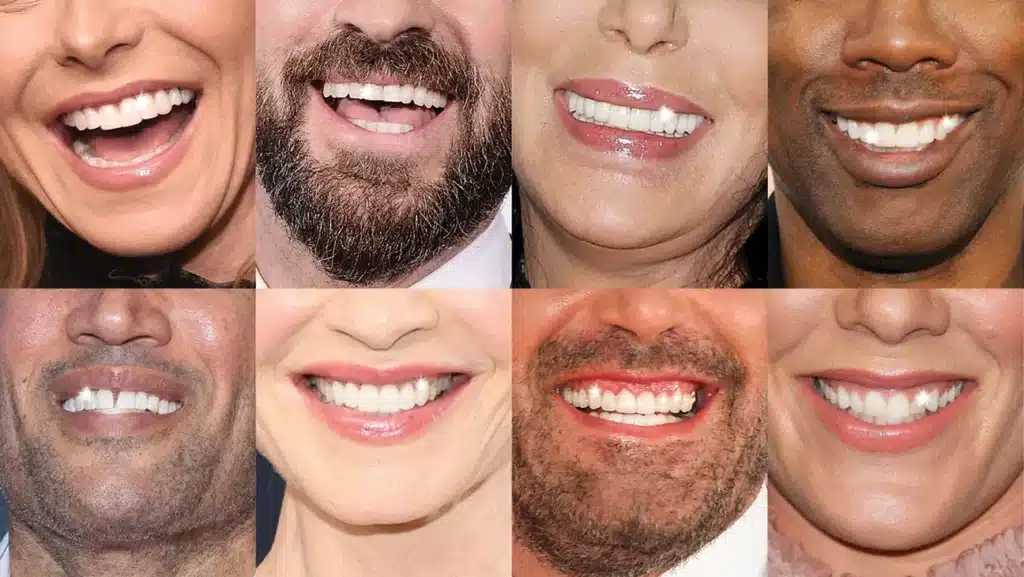
Smile Bright, UAE — Our Final Word
Teeth whiten fast isn’t magic. It’s a mix of chemistry, consistency, and common sense. The UAE offers world-class dental care, plus a wide range of high-quality whitening products — but knowing which to trust is half the battle.
If you’re after results that last, play the long game: go pro, then maintain. And above all, remember — a confident smile isn’t just white. It’s healthy, natural, and uniquely yours.
Frequently Asked Questions
The best at-home teeth whitening methods include using hydrogen peroxide-based whitening strips, baking soda toothpaste, or LED whitening kits approved by dentists.
Most whitening strips are safe when used as directed, but daily use beyond recommendations can cause enamel sensitivity.
Results from whitening treatments can appear within a few days, but full results often take 1–2 weeks.
Professional whitening treatments offer faster and more dramatic results, but high-quality home kits can be effective with consistent use.
Natural remedies may have minimal effects. Activated charcoal and oil pulling lack strong scientific evidence compared to proven methods like peroxide whitening.
Health & Fitness
How to Know If You Have a Zinc Deficiency—and What to Do About It
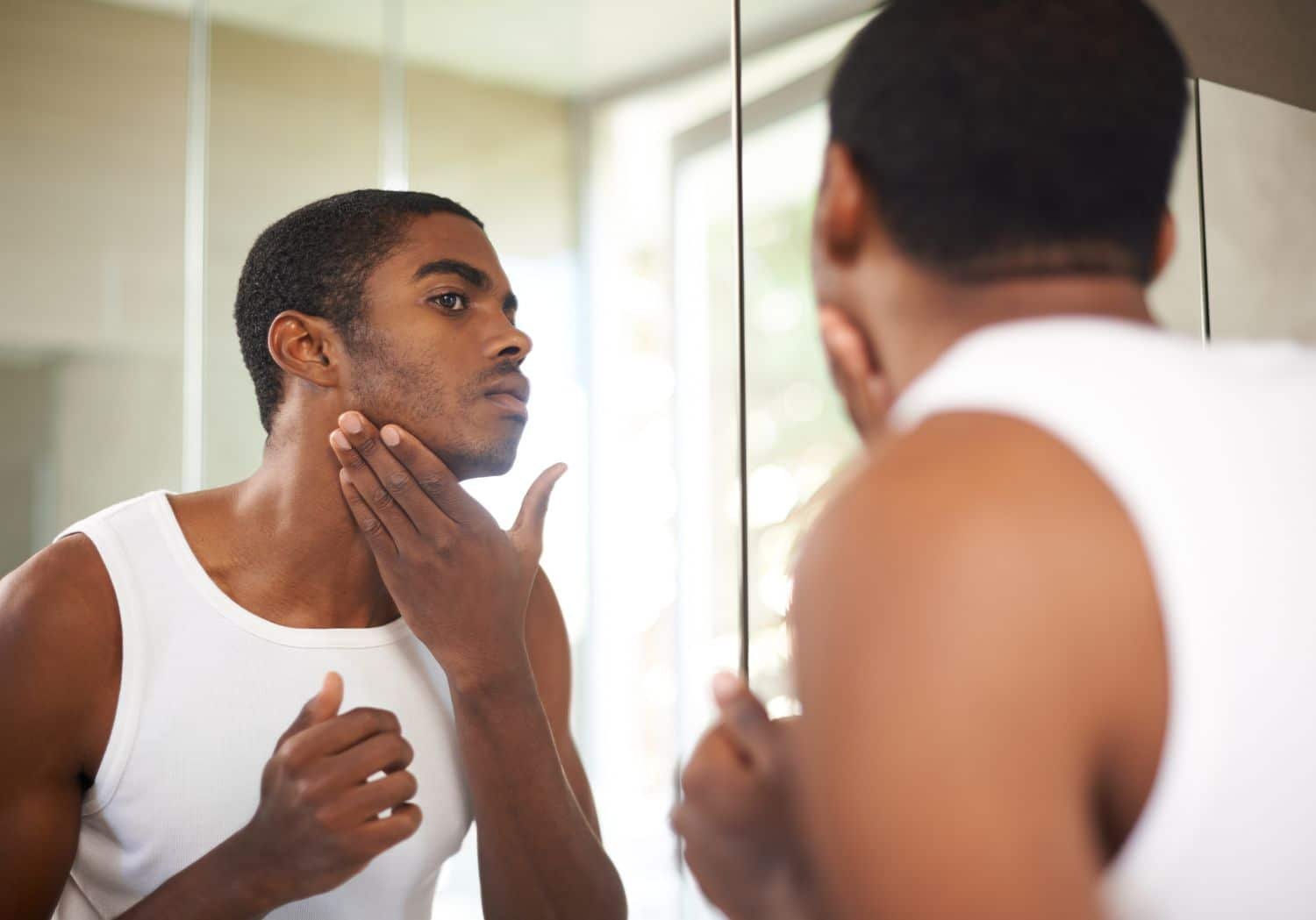
Zinc deficiency symptoms can sneak up on you—unlike vitamin D or B12, which tend to get all the attention. But overlooking zinc could cost you more than just energy levels. From weakened immunity to hair loss and delayed healing, zinc is a critical mineral your body can’t afford to miss. The twist? Your body doesn’t make or store it. So you have to get it daily, and most people don’t even know they’re falling short.
In this in-depth guide, we’ll cover everything you need to know about zinc: what it does, how to know if you’re deficient, how it affects your skin, hair and libido, and what to do about it if your levels are low. We’ve asked expert UK-based nutritionists and medical professionals to give us the full picture—plus tips on how to correct it with diet or the right supplements.
What Is Zinc and Why It Matters
Zinc is an essential trace mineral responsible for supporting more than 300 enzymes in the human body, which means its deficiency can lead to significant health challenges. It contributes to:
- Immune system health
- Wound healing and tissue repair
- DNA and protein synthesis
- Cell division and growth
- Metabolism regulation
- Taste and smell perception
Dr Gina Schoeman, aesthetic doctor at CREO Clinic in London, explains:
“Zinc is vital for immune function, protein synthesis, wound healing, DNA synthesis, and cell division. Our bodies cannot store zinc, so we must obtain it regularly through our diet.”
Unlike fat-soluble nutrients, your body doesn’t have a “zinc reserve.” This makes daily intake crucial—miss a few days and the effects begin to show.
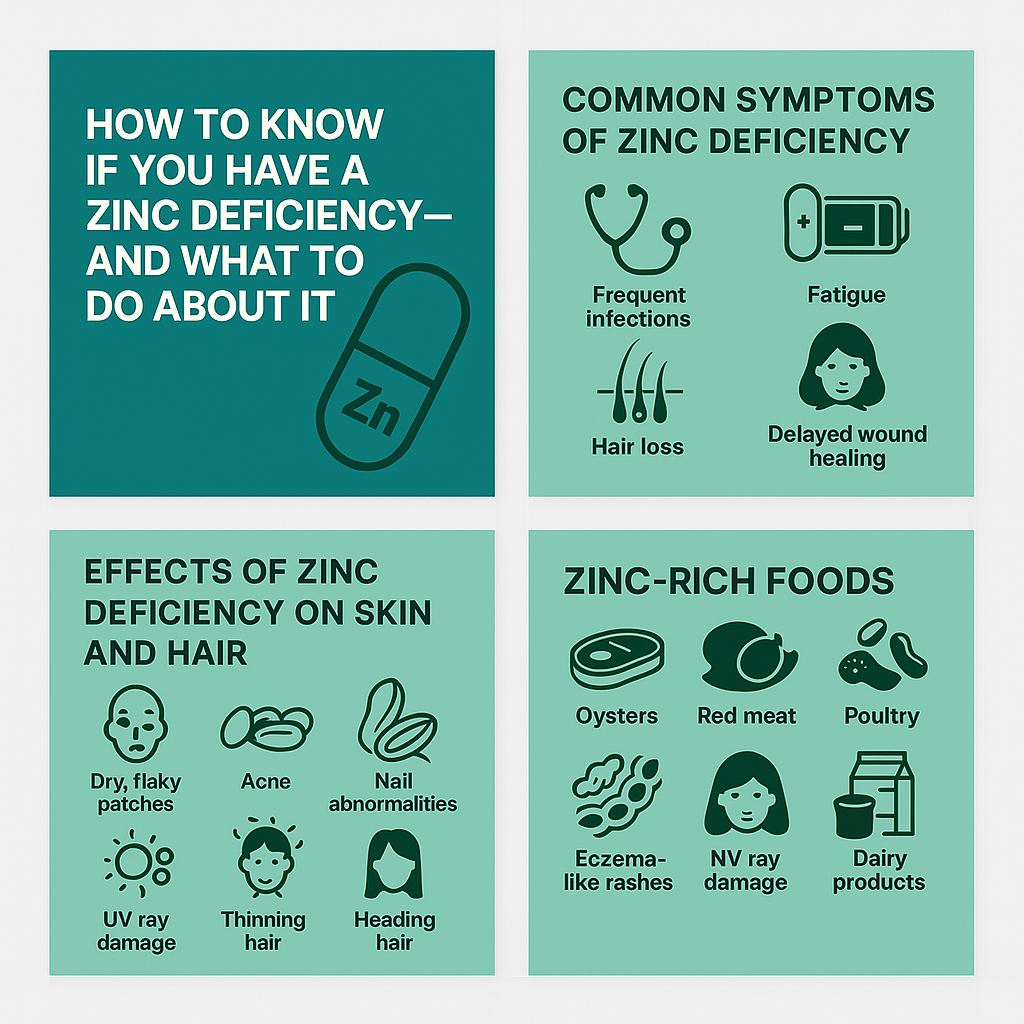
Common Signs and Symptoms of Zinc Deficiency
Zinc deficiency is more common than you might expect, especially among people with restricted diets, chronic stress, or high alcohol intake. Symptoms are often subtle but progressively damaging, highlighting the importance of monitoring zinc deficiency closely:
- Frequent colds or infections
- Fatigue and low energy
- Delayed wound healing
- Loss of appetite
- Hair thinning or loss
- Dry skin or acne
- Reduced sense of taste and smell
- White spots on fingernails
- Mood swings, irritability or depression
“Identifying a zinc deficiency can be tricky since symptoms can be vague and overlap with other nutritional deficiencies,” says Dr Schoeman. “However, if you experience fatigue, frequent infections or delayed wound healing, it might be worth checking your zinc levels.”
In children, zinc deficiency can also cause growth delays and weakened immunity.
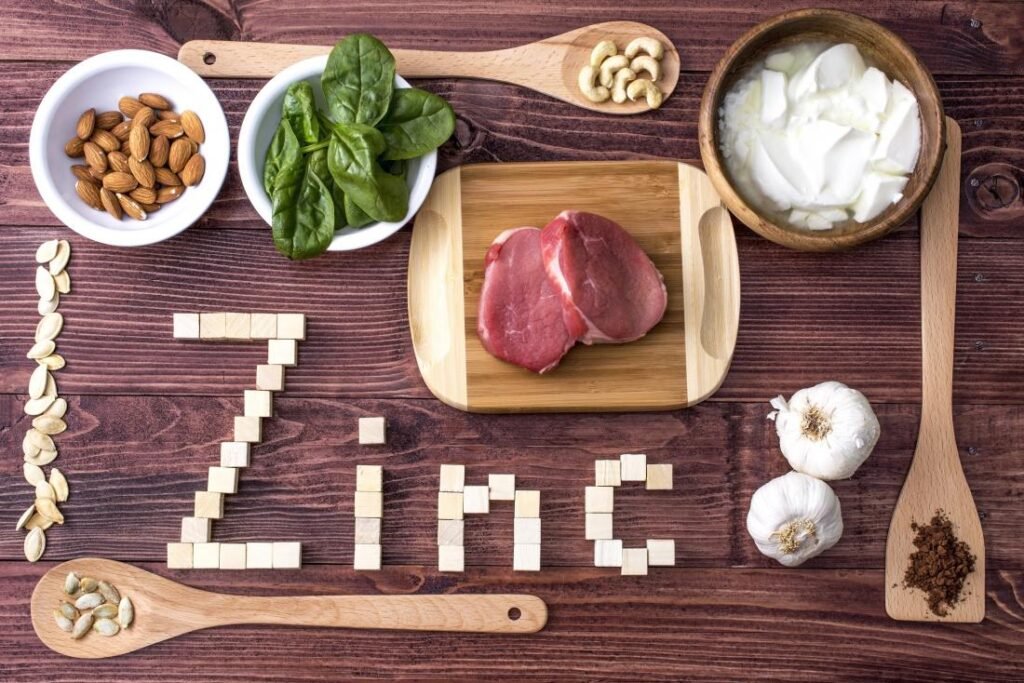
How Zinc Deficiency Affects Skin, Hair and Nails
Zinc is a top performer in skin integrity and tissue renewal. Nutrition expert Rachel Clarkson notes that a lack of this mineral can severely impact skincare efforts:
“Zinc deficiency can cause dry, flaky skin, nail abnormalities, acne breakouts, and even eczema-like rashes. Cuts and scrapes may also take longer to heal.”
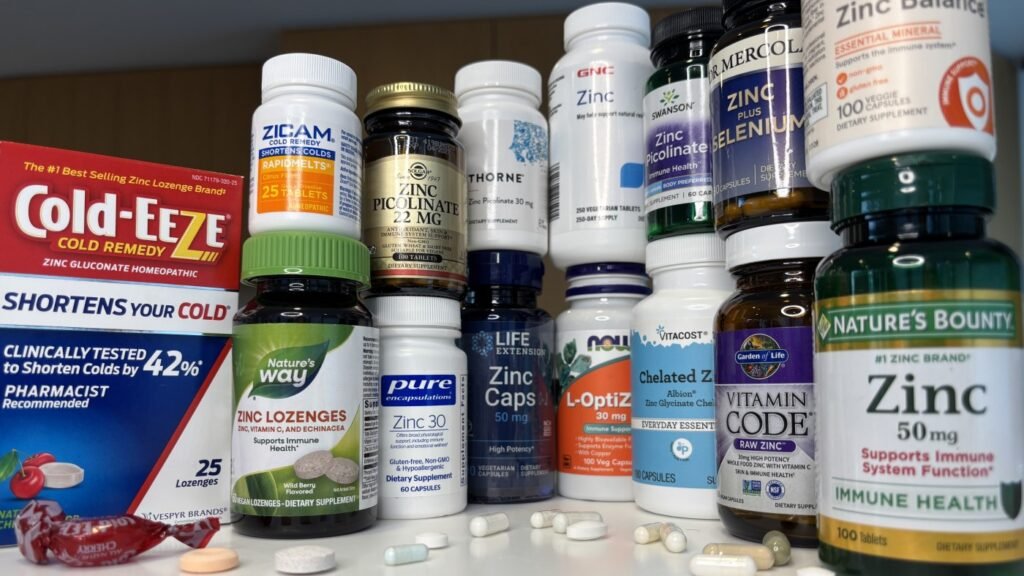
Dr Schoeman adds that zinc deficiency is one of the most overlooked causes of female hair thinning:
“It plays a role in hair tissue growth and repair, and adequate levels help prevent hair loss. Zinc deficiency is often linked to thinning, particularly in women.”
It even helps shield your skin from UV damage and supports post-sun repair. So if your skincare routine isn’t delivering results—it might be your zinc intake that’s off.
Zinc’s Role in Sexual and Reproductive Health
Zinc is a heavy hitter when it comes to sexual health and fertility—for both men and women. Its deficiency could disrupt delicate hormonal balances, affecting overall health significantly.
According to Harley Street nutritionist Clarissa Lenherr:
“Zinc is crucial for the production of testosterone, the primary male sex hormone. Low levels are linked to reduced libido and sexual performance. It’s also essential for spermatogenesis—maintaining sperm motility and quality.”
In women, zinc supports hormone regulation and egg health. It plays a subtle but powerful role in reproductive balance, especially during pregnancy, menstruation, and hormonal fluctuations.

What Causes Zinc Deficiency?
Zinc deficiency can be caused by several factors, and understanding them is crucial to addressing the issue:
- Poor diet – Lacking zinc-rich foods like meat, shellfish, seeds, and whole grains
- Vegetarian or vegan diets – Plant-based zinc is harder to absorb
- High sugar intake – Reduces zinc bioavailability
- Alcoholism – Interferes with zinc absorption and increases urinary excretion
- Digestive disorders – Conditions like Crohn’s disease, IBS or coeliac disease impair absorption
- Excessive sweating – Athletes and those in hot climates may lose zinc faster
- Pregnancy and breastfeeding – Higher demands not always met by diet alone
Even regular stress and overtraining can reduce your zinc levels subtly over time.
How to Test Your Zinc Levels
To confirm a deficiency, the best way is through a serum plasma zinc test conducted by your GP or private clinic. Addressing zinc deficiency starts with accurate diagnosis.
Other ways include:
- Hair mineral analysis – Indicates long-term deficiency, although less reliable
- Functional tests – Indirect markers like low alkaline phosphatase levels or white blood cell count
- Taste tests – Zinc taste tests can indicate potential deficiency but aren’t highly accurate
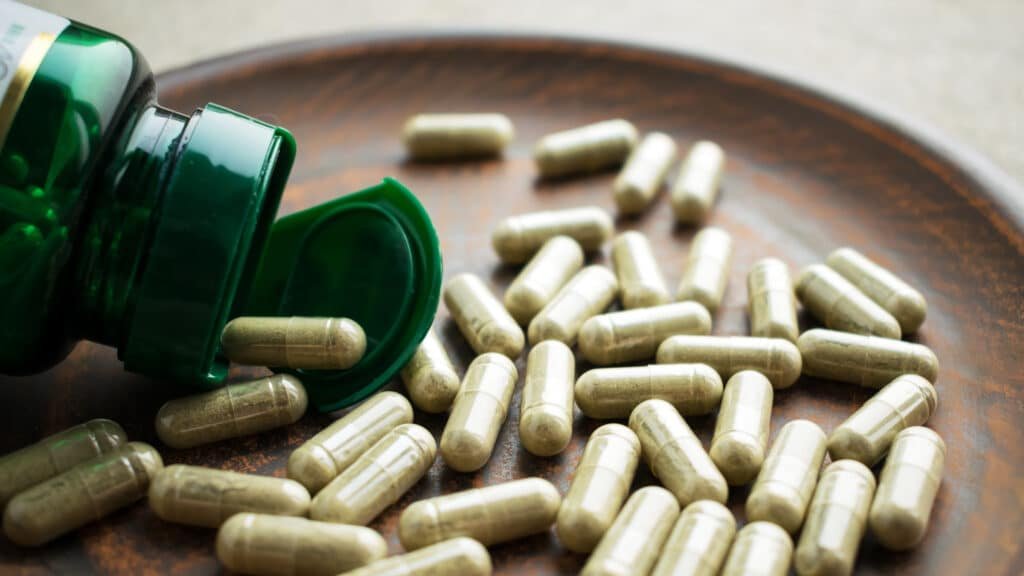
How to Increase Zinc Levels Through Diet
Start with your plate. Dr Schoeman recommends focusing on dietary changes to mitigate zinc deficiency:
Top zinc-rich foods (by content per 100g):
| Food | Zinc (mg) |
|---|---|
| Oysters (wild) | 60 mg |
| Beef (lean) | 12.3 mg |
| Pumpkin seeds | 10.3 mg |
| Lamb | 6.7 mg |
| Cashews | 5.6 mg |
| Chickpeas (cooked) | 1.5 mg |
| Fortified cereals | 3.8 mg |
| Yoghurt | 1.0 mg |
-

 Concerts2 days ago
Concerts2 days agoF1 Abu Dhabi Concerts Line Up 2025: Your Ultimate Guide to This Year’s Yasalam After-Race Shows
-

 Health & Fitness2 weeks ago
Health & Fitness2 weeks agoHow to Whiten Teeth in the UAE — The Real Guide You Actually Need
-

 Nightlife3 weeks ago
Nightlife3 weeks agoHow Boiler Room Became the World’s TV Nightclub
-

 Comedy2 weeks ago
Comedy2 weeks agoDave Chappelle Live in Abu Dhabi: A Night of Comedy History at Etihad Arena
-

 Tech3 weeks ago
Tech3 weeks agoWhat is Kahoot and Why Is It Everywhere?
-

 Lifestyle3 weeks ago
Lifestyle3 weeks agoOfficial Images Of The Air Jordan 3 ‘Pure Money’
-

 Health & Fitness2 weeks ago
Health & Fitness2 weeks agoIs Beef Tallow Actually Any Good for You?
-

 Lifestyle2 weeks ago
Lifestyle2 weeks agoThe Justin Bieber Skylrk Brand: What We Know So Far



















